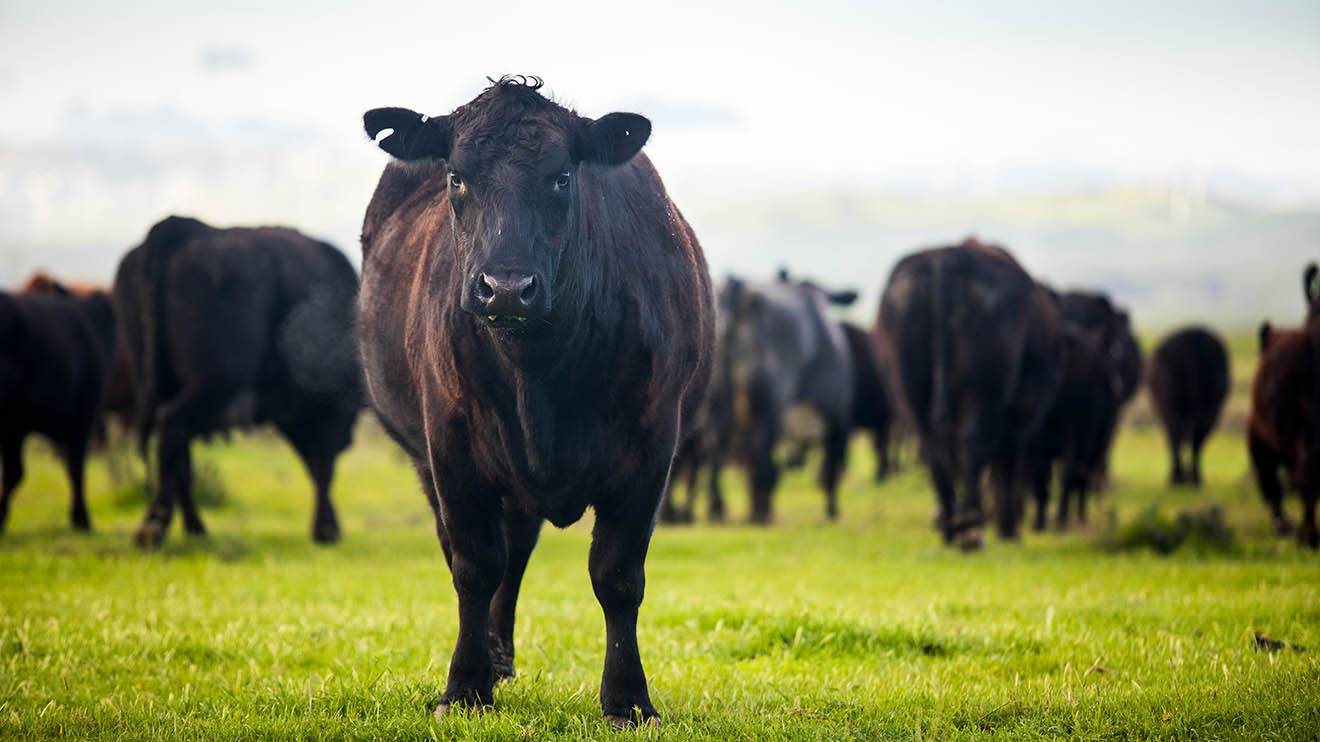The beef cattle industry plays a crucial role in Georgia’s agricultural landscape. From the rich soils of the southern fields to the challenging climates of different regions, cattle farming in Georgia has evolved into a robust sector that supports local economies and provides high-quality beef to markets far and wide. But with so many cattle breeds available, the burning question remains: what is the most popular beef cattle in georgia? In this article, we’ll explore the top breeds for success in the Peach State, delve into the factors that influence breed popularity, and provide actionable advice for farmers looking to choose the right breed for their operations.
For more detailed guides and industry insights, visit georgiaguider.
Opening Hook
In a state known for its diverse agricultural heritage, beef cattle farming stands out as one of Georgia’s most vital and dynamic industries. Whether you’re a seasoned farmer or a newcomer eager to break into the market, understanding which cattle breed reigns supreme can be the key to unlocking both profitability and sustainability.
Statement of the Problem
Farmers and investors alike often ask: what is the most popular beef cattle in georgia? With countless breeds boasting different traits, finding the one that fits your unique environmental and economic conditions can be challenging.
Purpose of the Article
The purpose of this article is to provide a comprehensive overview of the beef cattle industry in Georgia, analyze the factors that drive breed popularity, and shine a spotlight on the top-performing breed. Our goal is to equip you with the insights needed to make informed decisions that align with both your operational needs and market demands.
Introduction to georgiaguider
At georgiaguider, you’ll find a wealth of resources tailored to Georgia’s agricultural community. This guide will serve as your starting point for exploring the best beef cattle breeds and implementing best practices on your farm.
Overview of Georgia’s Beef Cattle Industry
Historical Background
Georgia’s cattle industry has deep roots, dating back to early American history. Over the decades, the region’s favorable climate and vast expanses of pastureland have made it an ideal location for cattle farming. Early settlers recognized the potential of the land, leading to the establishment of cattle operations that have now evolved into modern, technology-driven enterprises.
Current Landscape
Today, beef cattle farming in Georgia is characterized by a blend of traditional practices and innovative techniques. Key statistics reveal that the state is home to thousands of cattle operations ranging from small family farms to large commercial enterprises. This diversity in operation size has spurred a competitive market where quality, efficiency, and breed adaptability are paramount.
Economic Impact
The economic contribution of the beef cattle industry in Georgia cannot be overstated. It supports not only the farmers but also a network of ancillary businesses including feed suppliers, veterinary services, and meat processing plants. The success of this sector has a ripple effect throughout the state’s economy, making it essential for stakeholders to choose cattle breeds that promise high returns and long-term sustainability.
Key Factors Influencing Breed Popularity in Georgia
When considering the right cattle breed, several critical factors come into play. These include:
Adaptability to Local Climate and Terrain
Georgia’s varied climate and topography demand a breed that can thrive under local conditions. The most popular beef cattle breeds have demonstrated strong adaptability—resilient enough to withstand the heat and humidity of southern summers while also managing during cooler periods.
Economic Considerations
Profitability is a top priority for any cattle farmer. Breeds that offer efficient feed conversion, rapid growth rates, and high-quality meat cuts naturally become favored. The economic performance of a breed is often measured by its return on investment, making cost-effectiveness a vital criterion in breed selection.
Quality of Meat and Market Demand
Consumer demand for premium beef has escalated in recent years. This shift means that farmers must not only consider the cost of raising cattle but also the quality of meat produced. The most popular beef cattle breeds are those that consistently deliver high marbling, tenderness, and flavor, meeting the exacting standards of today’s market.
Management and Health Considerations
Ease of care, disease resistance, and overall herd health are critical considerations. Breeds that require less intensive management, have lower incidences of health issues, and adapt well to different feeding regimens are particularly attractive. These factors contribute to lower operational costs and a more sustainable farming model.
Top Beef Cattle Breeds in Georgia
While several breeds have made a name for themselves in Georgia, a few stand out due to their adaptability, economic benefits, and overall performance. Here, we profile the leading breeds and provide a comparative analysis.
Breed Profiles
Angus
Arguably one of the most popular beef cattle breeds across the United States, Angus cattle have a longstanding reputation for quality. In Georgia, their adaptability and high marbling quality make them a top choice. Angus cattle are known for:
- Superior Meat Quality: Renowned for well-marbled beef that commands a premium in the market.
- Adaptability: Well-suited to Georgia’s climate, managing heat and humidity effectively.
- Ease of Management: Relatively low maintenance with strong maternal instincts.
Hereford
Hereford cattle are another staple in Georgia’s beef industry. Their robust nature and excellent feed efficiency have earned them a loyal following. Key traits include:
- Hardiness: Strong adaptability to diverse environmental conditions.
- Efficient Growth: Known for rapid weight gain and efficient feed conversion.
- Market Appeal: The beef produced is known for its flavor and tenderness.
Simmental
While not as widely recognized as Angus or Hereford in some regions, Simmental cattle have carved out a niche in Georgia due to their dual-purpose capabilities. They offer:
- Versatility: Suitable for both beef and dairy production, which can be an advantage for some operations.
- Large Frame: Typically larger in size, which can translate into higher yield.
- Adaptability: Perform well in various climates, including the diverse regions of Georgia.
Comparative Analysis
When comparing these breeds, several factors come into play:
- Adaptability: Angus and Hereford are particularly well-adapted to Georgia’s conditions, while Simmental offers versatility for farmers interested in both dairy and beef.
- Economic Value: Angus cattle typically provide a higher return due to the premium beef quality, whereas Hereford offers excellent feed efficiency and lower rearing costs.
- Management Requirements: All three breeds have their own management considerations, but Angus and Hereford are generally considered easier to manage under Georgia’s typical farming conditions.
Spotlight on the Most Popular Beef Cattle Breed in Georgia
After evaluating various factors, one breed consistently emerges as the most popular: the Angus. Let’s take a closer look.
Detailed Profile of Angus
Angus cattle have become synonymous with quality beef. Their rich genetic heritage and natural attributes make them a favorite among farmers in Georgia. Some defining characteristics of the Angus breed include:
- Genetic Superiority: Developed over generations for traits that optimize beef quality.
- Natural Marbling: High levels of intramuscular fat that result in juicy, tender, and flavorful meat.
- Efficient Feed Conversion: They have proven efficiency in converting feed into high-quality meat, reducing overall rearing costs.
- Robust Health: With a strong genetic predisposition for disease resistance and overall hardiness, Angus cattle require relatively minimal intervention compared to some other breeds.
Reasons for Its Popularity
Several factors contribute to the Angus breed’s popularity in Georgia:
- Market Demand: Consumers around the country are willing to pay a premium for Angus beef, knowing that it consistently meets high-quality standards.
- Adaptability: The breed thrives in a variety of environmental conditions, making it a reliable choice in Georgia’s fluctuating weather.
- Economic Benefits: Angus cattle not only fetch higher market prices but also exhibit lower mortality and morbidity rates, leading to better overall profitability.
- Success Stories: Numerous Georgia farms have seen significant success with Angus herds, often highlighting improved herd productivity and better meat quality as major advantages.
Success Stories and Case Studies
Consider the example of a mid-sized farm in southern Georgia. The owner, who transitioned to an Angus-dominant herd five years ago, reported a dramatic increase in beef quality and market prices. Through meticulous herd management and strategic breeding, the farm experienced:
- Increased Weight Gain: Cattle reached market weight faster, reducing feed costs.
- Enhanced Meat Quality: Higher marbling scores led to a notable premium when selling to local processors.
- Lower Disease Incidence: The robust health of the Angus breed minimized veterinary expenses and losses.
These success stories serve as a testament to why Angus is widely regarded as the most popular beef cattle breed in Georgia.
Considerations for Farmers: How to Choose the Right Beef Cattle Breed
Choosing the right breed goes beyond just following market trends. Farmers must consider several key aspects tailored to their individual operations.
Assessing Farm Conditions
Before deciding on a breed, evaluate your farm’s specific environmental conditions:
- Climate Compatibility: Ensure that the breed you choose can thrive in your local weather conditions. For example, while Angus is well-adapted to both humid and warm climates, other breeds might require additional care in extreme conditions.
- Pasture Quality: Consider the quality and quantity of available pasture. Breeds that are efficient grazers and can manage on local forage may reduce feed costs significantly.
- Water Availability: Access to water is crucial for any cattle operation. Ensure your farm’s water resources align with the breed’s needs.
Economic and Management Considerations
Evaluate the financial implications of raising a particular breed:
- Feed Conversion Efficiency: Breeds that convert feed into body weight efficiently can significantly reduce operational costs.
- Health and Disease Resistance: Opt for breeds with a proven track record of robust health, as this will lower veterinary costs and minimize losses.
- Market Trends: Align your breed selection with consumer preferences. Given the premium market for Angus beef, for example, farmers may benefit from aligning their operations with current demand.
Practical Advice and Best Practices
- Start Small: If you’re new to cattle farming or trying out a new breed, consider starting with a smaller herd to gauge performance.
- Consult Experts: Engage with local agricultural extension services or experienced farmers in Georgia. Their insights can help tailor your decision to local conditions.
- Long-Term Planning: Think about the long-term implications of your choice. A breed that performs well now should also promise sustainability for years to come.
Conclusion
Recap of Key Points
In summary, Georgia’s beef cattle industry is a dynamic and essential component of the state’s agricultural economy. The popularity of a cattle breed in Georgia is influenced by factors such as adaptability to local conditions, economic benefits, quality of meat, and ease of management. While several breeds offer unique advantages, the Angus breed stands out for its superior meat quality, robust health, and strong market demand.
Final Answer to the Main Question
So, what is the most popular beef cattle in georgia? Based on current market trends, economic performance, and the breed’s adaptability to local conditions, Angus cattle have emerged as the top choice among Georgia farmers. Their consistent performance and high consumer demand make them the breed of choice for those looking to achieve success in the beef industry.
If you’re looking to further enhance your cattle farming operations or need more detailed guides on selecting the right breed, visit georgiaguider. Embrace the insights shared here to make an informed decision that sets your operation up for long-term success.
Frequently Asked Questions (FAQs)
Q1: What makes Angus cattle so popular in Georgia?
A: Angus cattle are celebrated for their high-quality, well-marbled beef, exceptional adaptability to Georgia’s climate, and efficient feed conversion. These traits contribute to higher market prices and overall profitability, making them a top choice among local farmers.
Q2: Are there any challenges associated with raising Angus cattle?
A: While Angus cattle are generally easy to manage, some farmers note that their premium quality meat requires consistent management practices. However, with proper care, the benefits far outweigh the challenges.
Q3: How do I decide which breed is right for my farm?
A: Evaluate your farm’s specific conditions such as climate, pasture quality, and water availability. Consider economic factors like feed efficiency and market demand. Consulting with local experts and starting with a smaller herd can also help in making an informed decision.
Q4: Can I mix breeds to optimize my herd?
A: Yes, many farmers use crossbreeding strategies to combine the best traits of different breeds. However, it’s essential to carefully manage the breeding program to ensure that the desirable characteristics are retained in the offspring.
Q5: Where can I find more resources on cattle farming in Georgia?
A: For more detailed guides, case studies, and expert advice, visit georgiaguider. The website offers a wide range of articles and resources tailored to the needs of Georgia’s agricultural community.
Final Thoughts
Choosing the right beef cattle breed is a decision that can shape the future of your farming operation. With the rich heritage of cattle farming in Georgia and the evolving demands of modern agriculture, understanding the strengths and limitations of each breed is paramount. The insights provided here, especially the spotlight on the Angus breed, aim to empower you to make a choice that aligns with both your economic goals and environmental conditions.
By considering factors such as adaptability, economic efficiency, and market demand, farmers can not only improve the quality of their beef but also ensure that their operations remain competitive in a dynamic market. As the industry continues to evolve, staying informed and adapting to new trends will be crucial for long-term success.
Remember, every farm is unique, and what works best for one operation might differ for another. Leverage local resources, seek expert advice, and stay engaged with the broader agricultural community to continuously refine your strategies.
Thank you for reading this in-depth guide on what is the most popular beef cattle in georgia. We hope you found valuable insights that can help you take your farming operation to the next level. For more industry news, tips, and comprehensive guides, be sure to check out georgiaguider.









